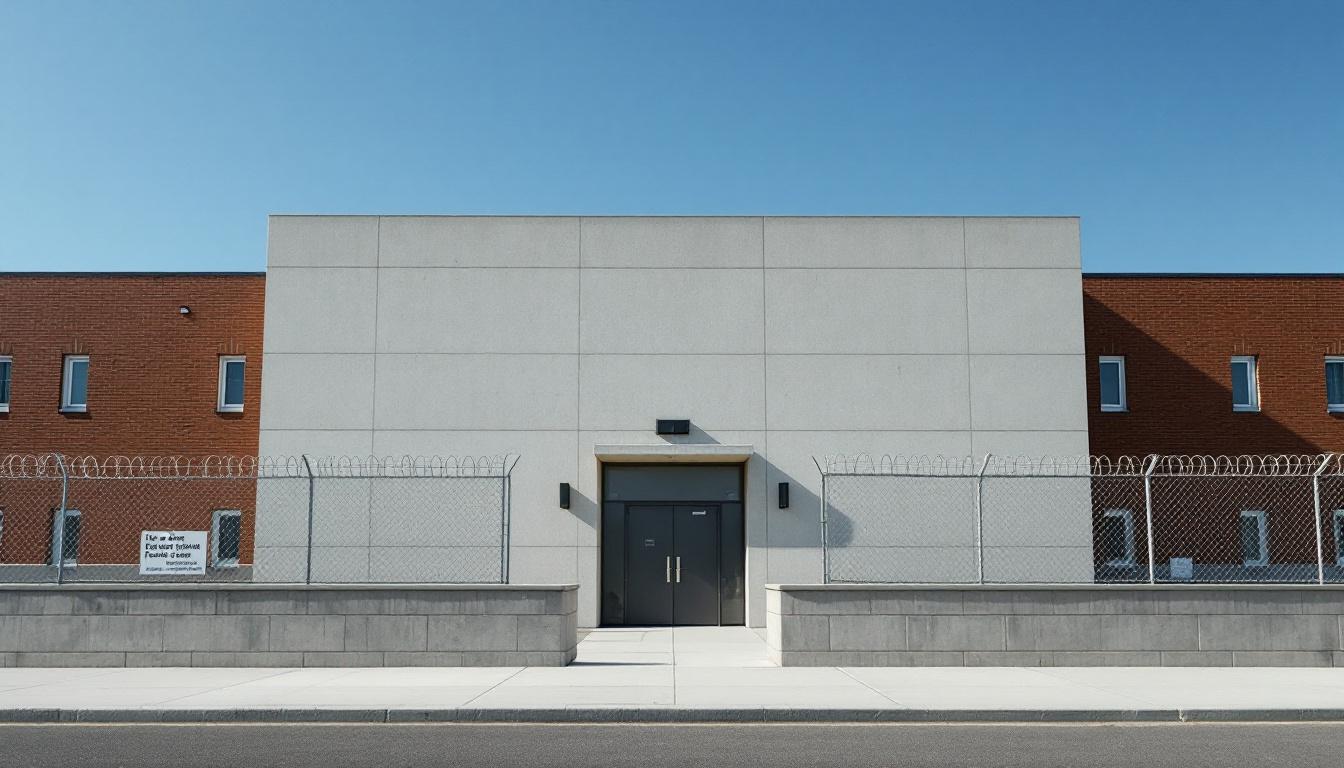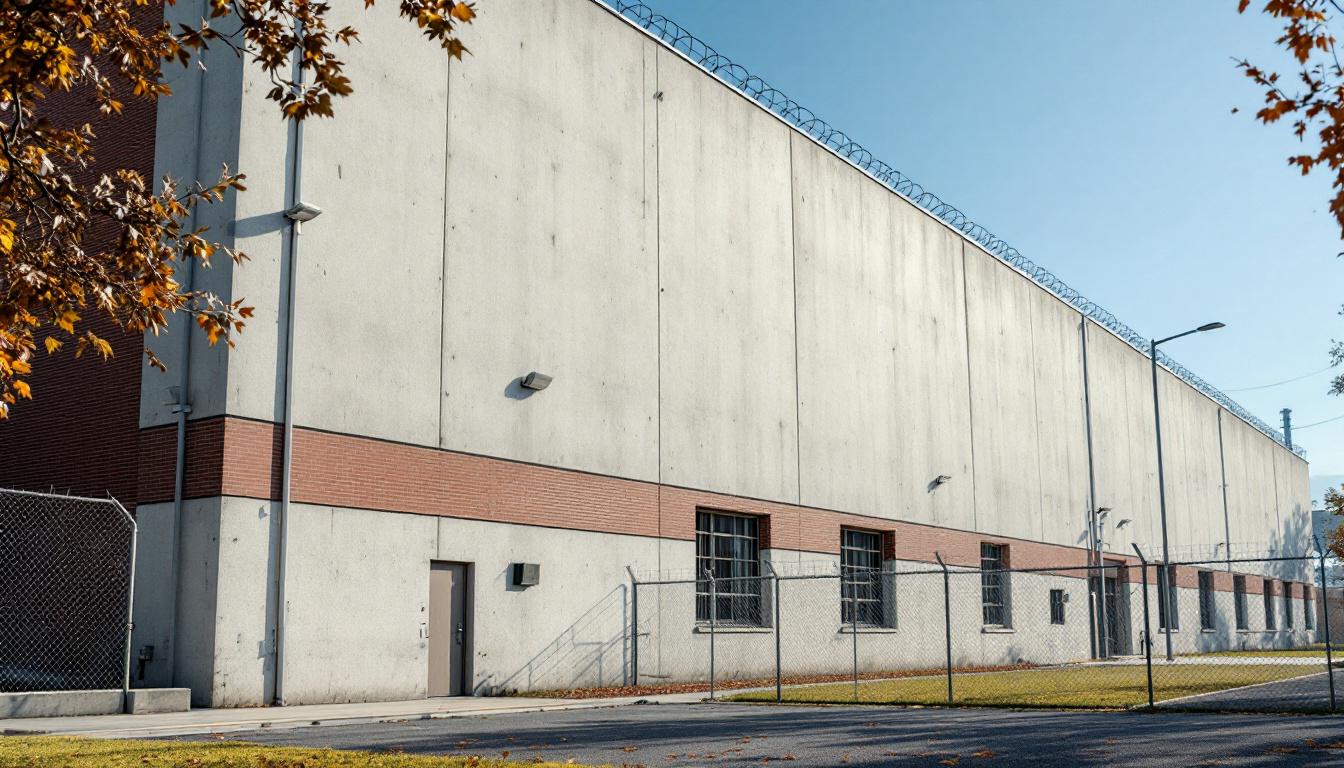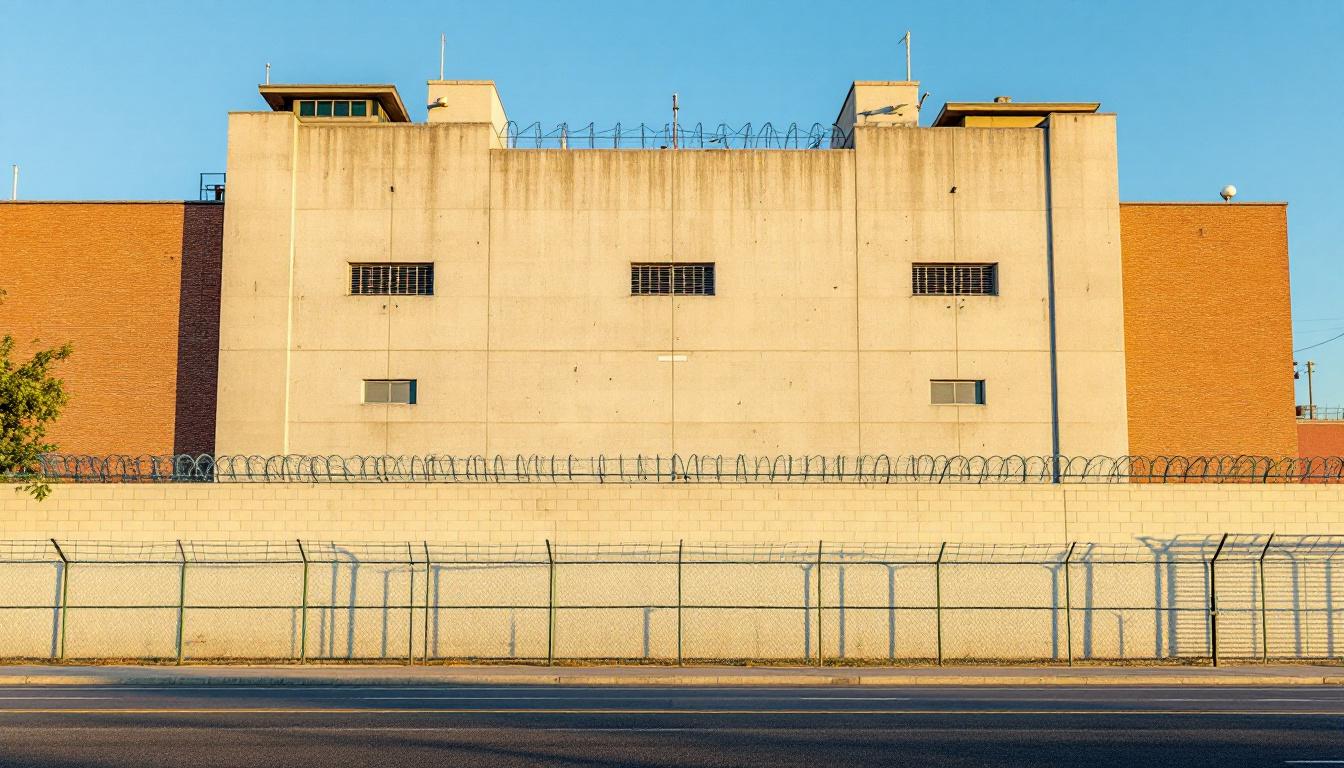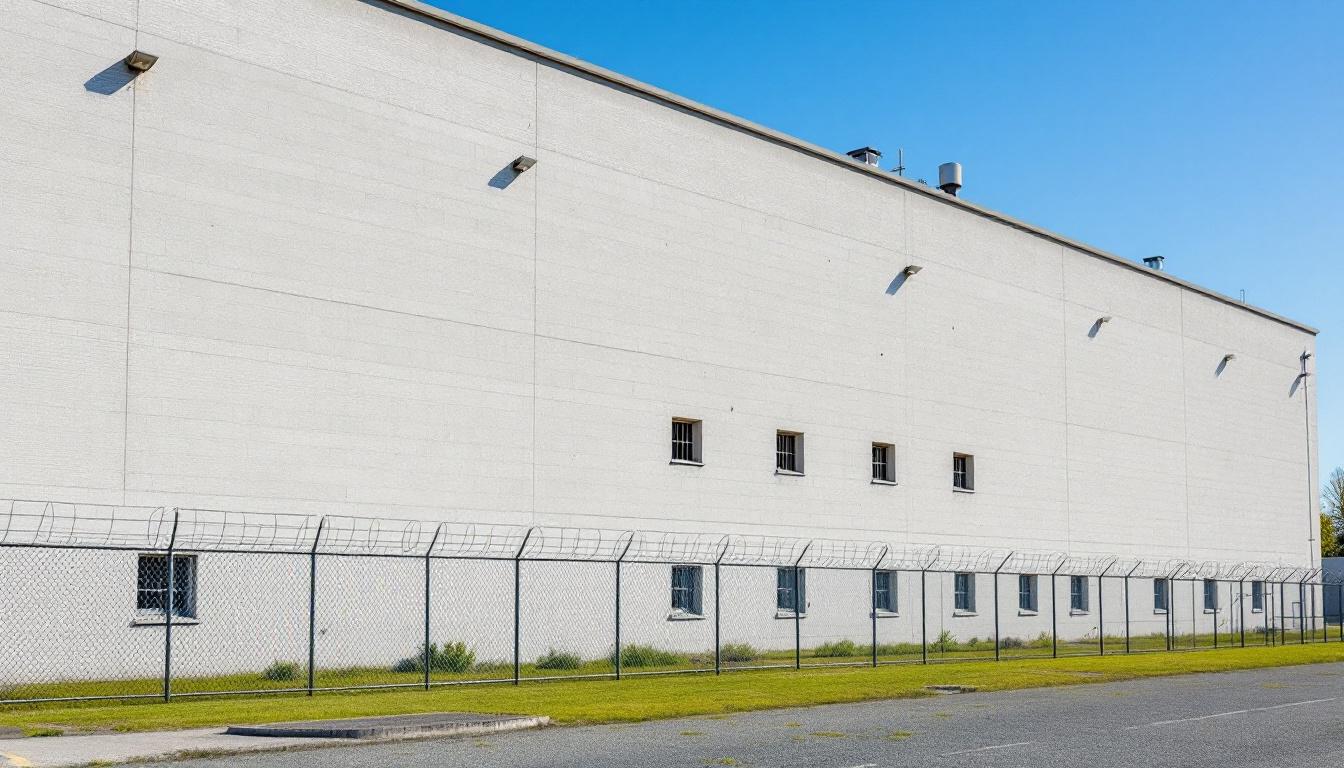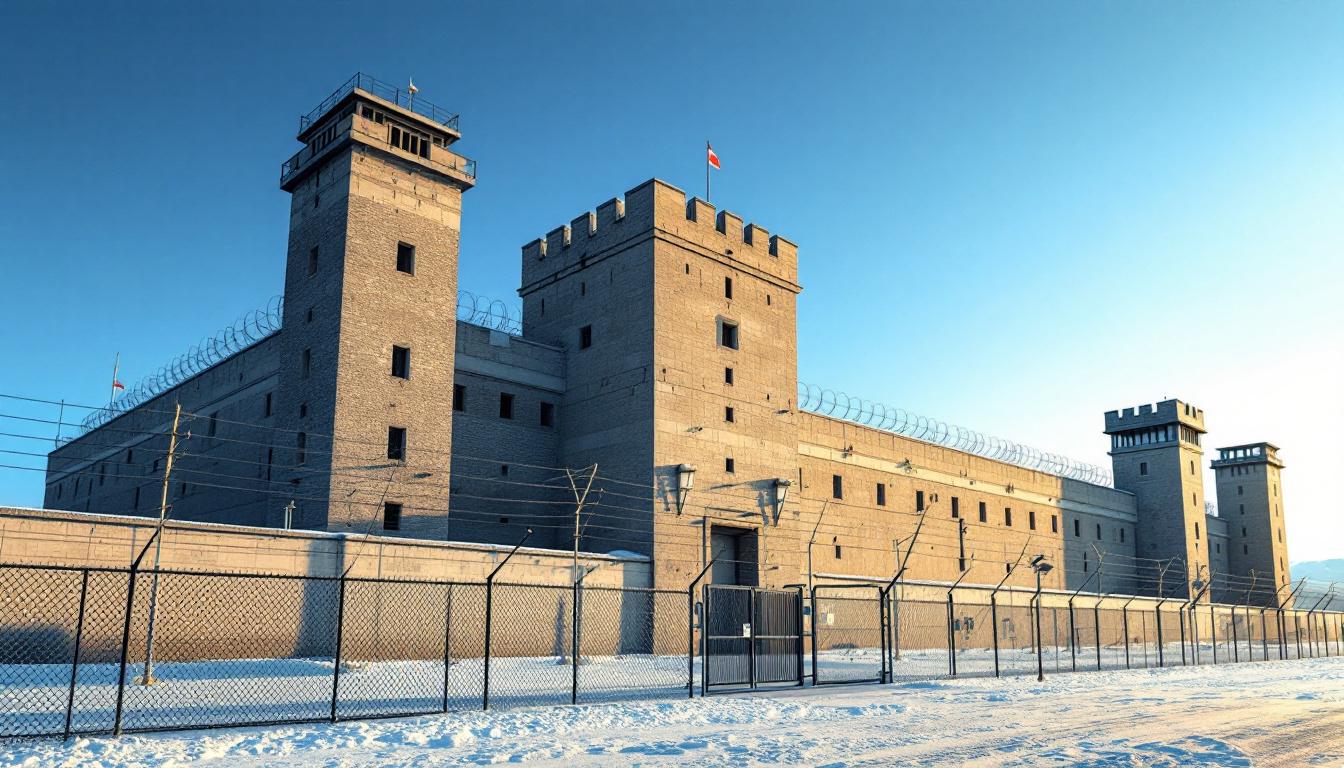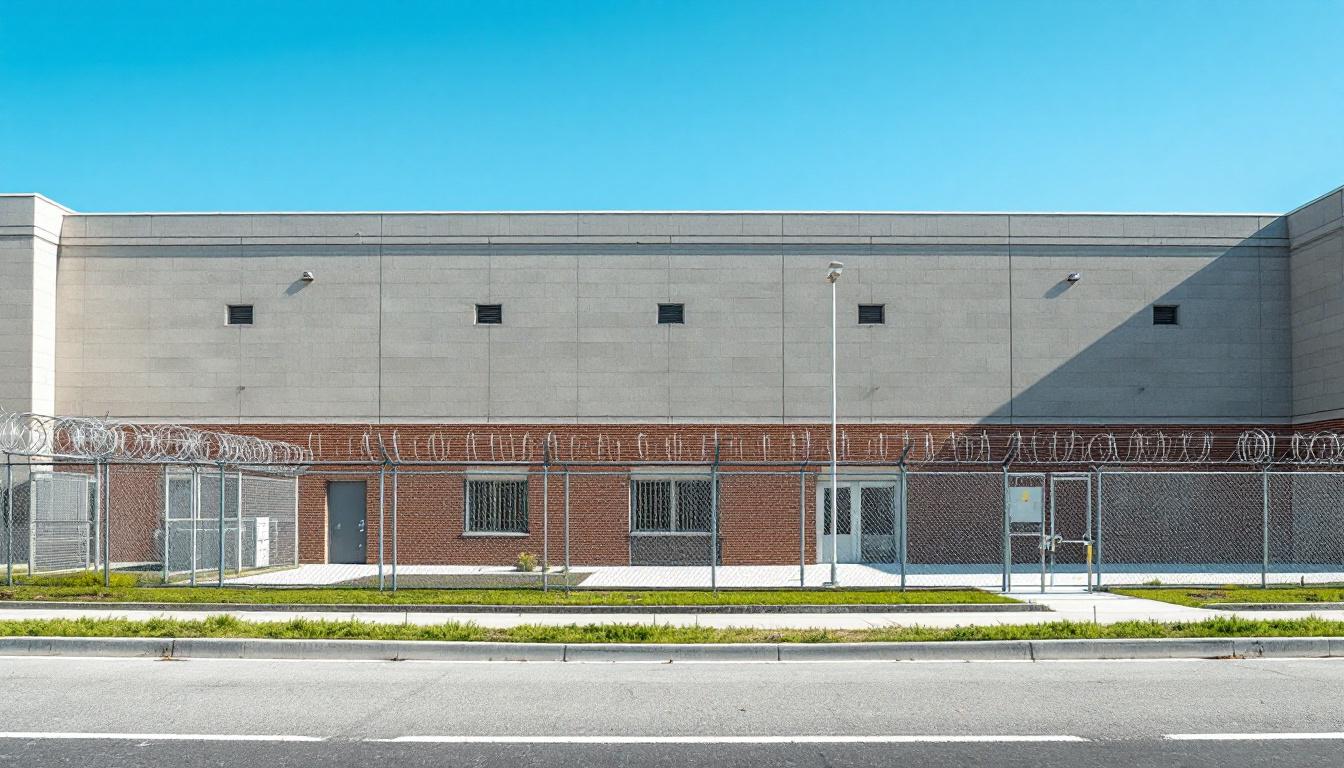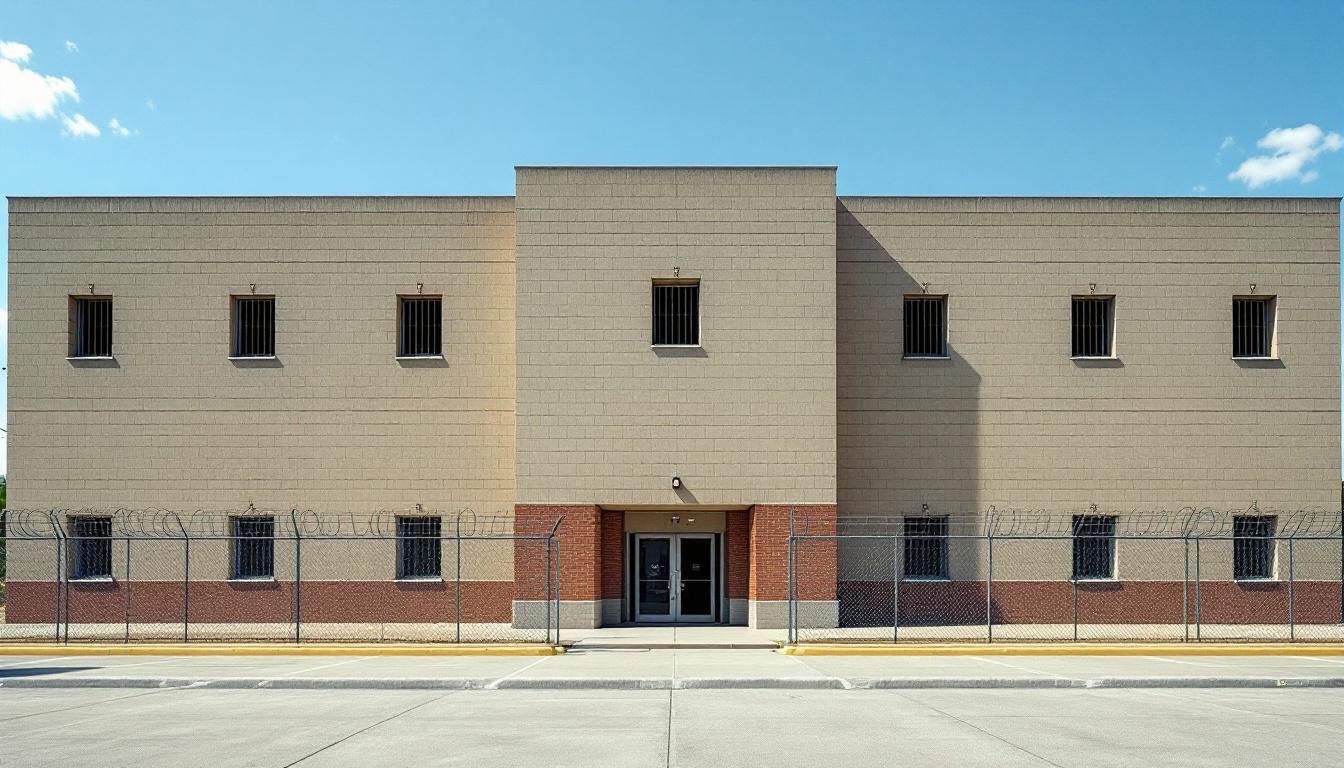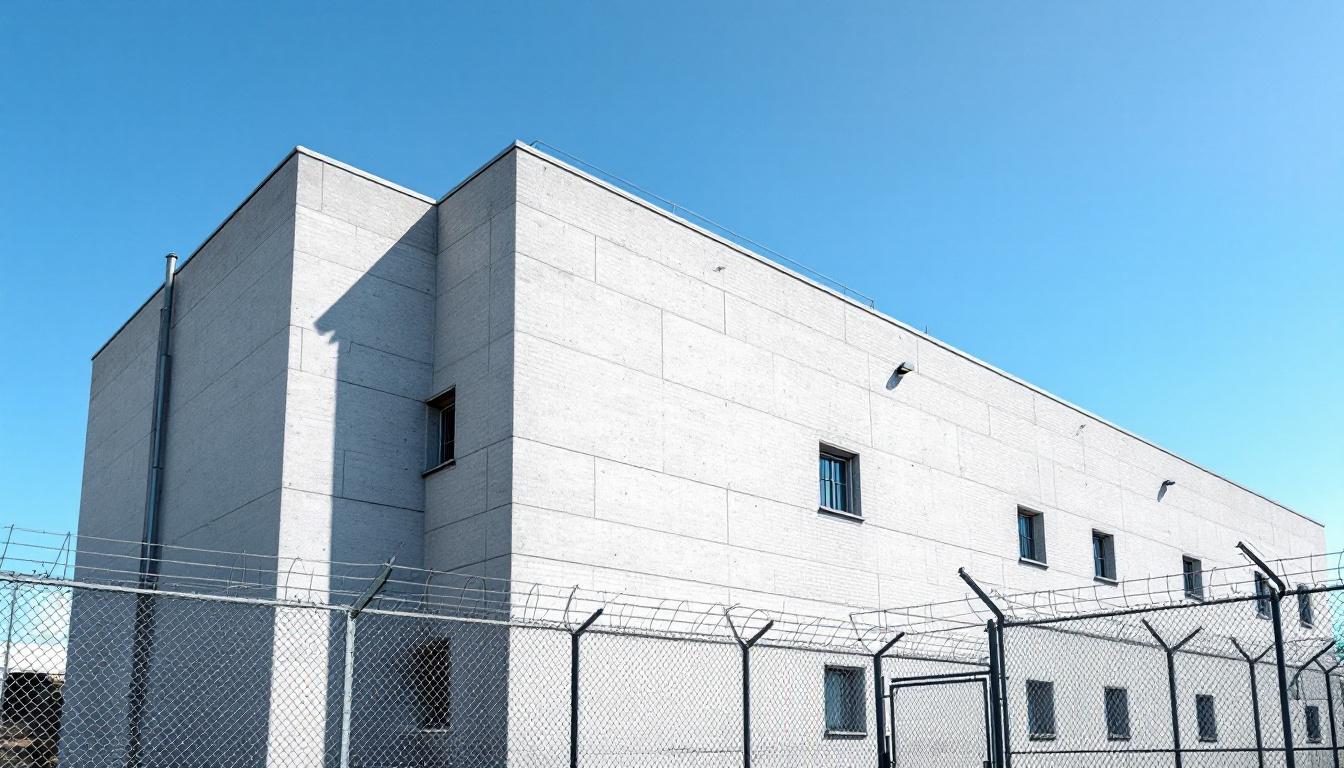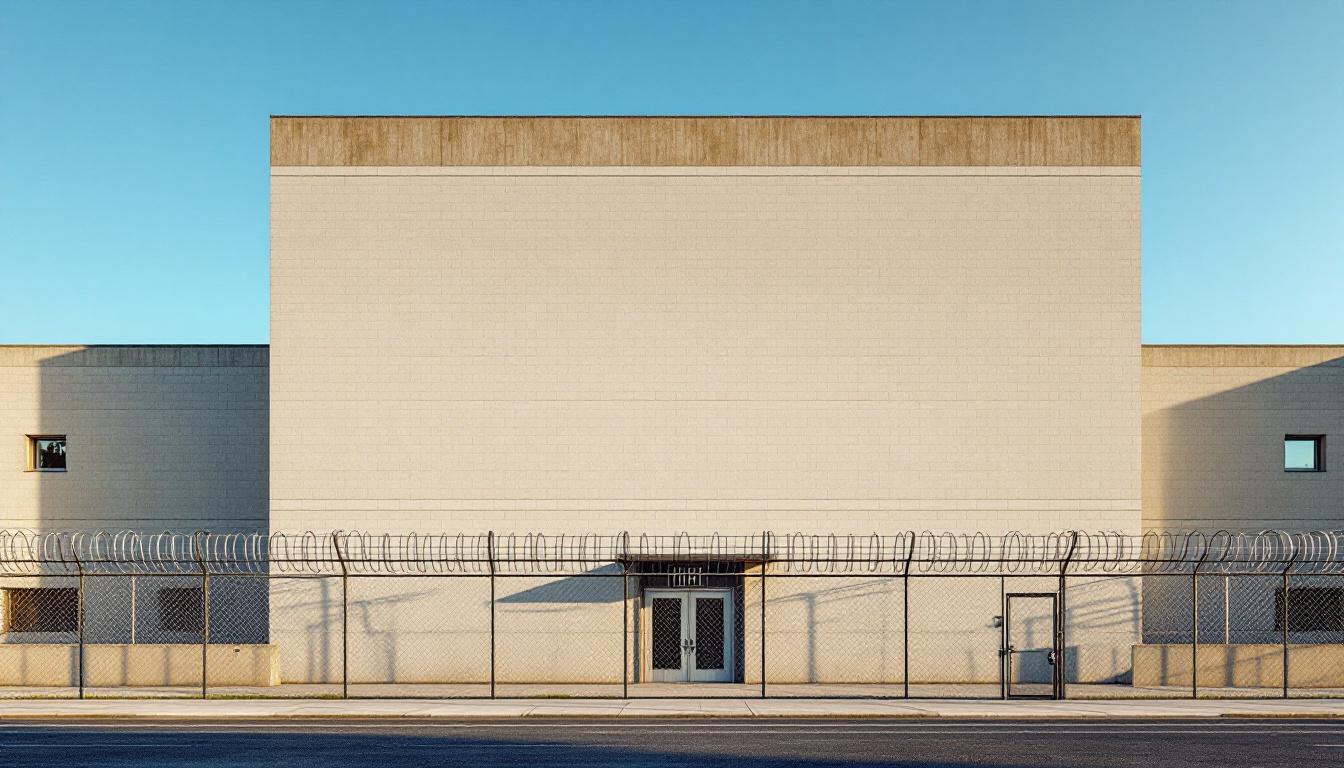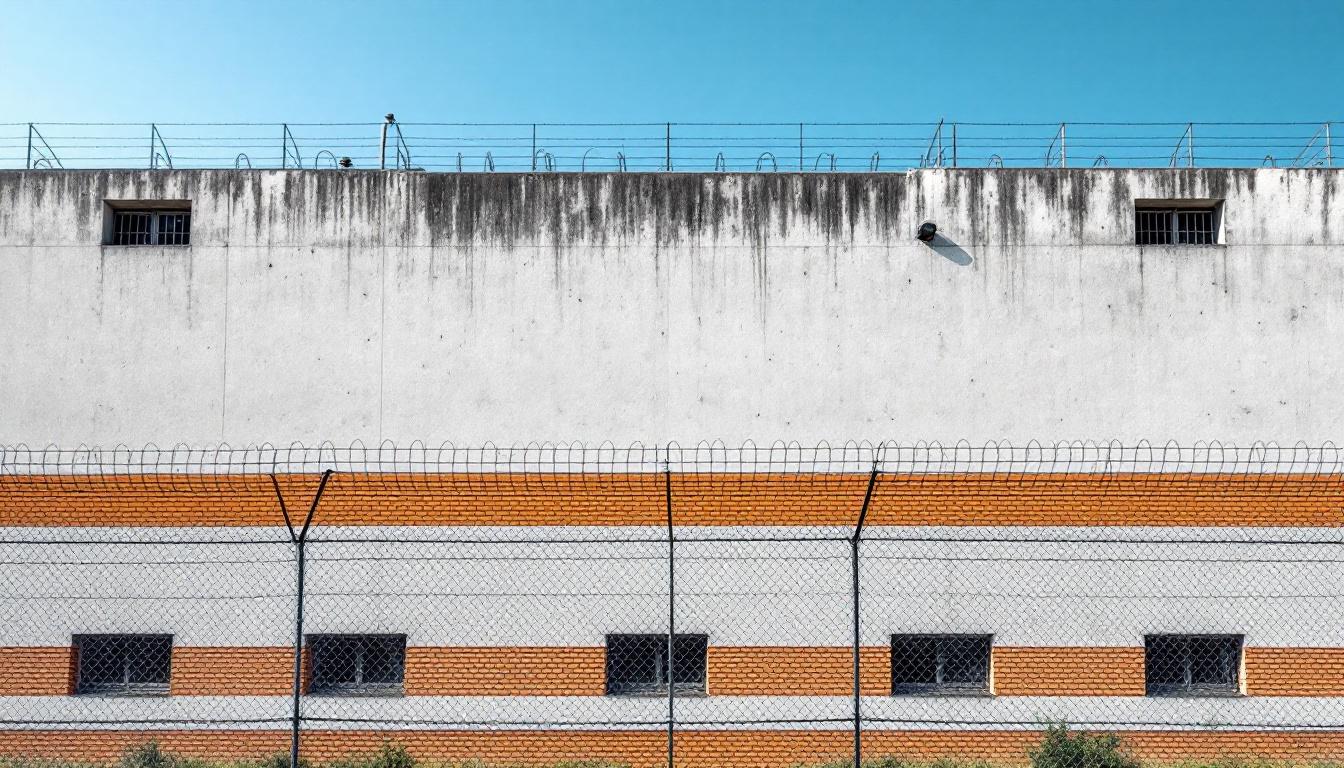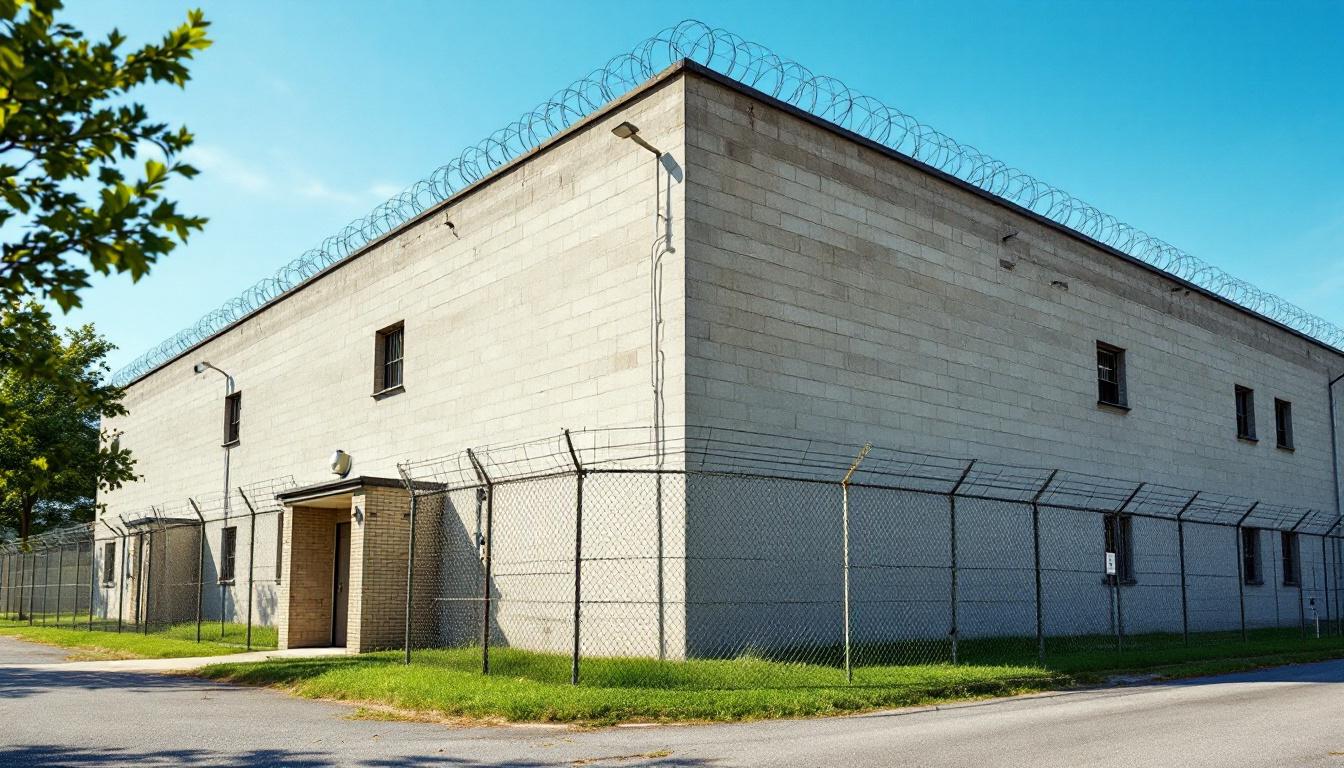
Quick Navigation
How to contact an inmate at Johnson County Sheriff Office
This comprehensive guide will walk you through how to connect with an inmate at Johnson County Sheriff Office. Follow the steps below to find an inmate and send letters and photos:
- Search for the inmate using our search tool below
- Create your account or log in to Penmate
- Write your message (up to 6,000 characters)
- Send instantly - inmates receive printed copies daily
Find an Inmate
Search for an inmate to start communicating today
Tip: You can search by first name, last name, or inmate ID number
To contact a person at Johnson County Sheriff Office start by searching for the person on the official facility website. Perform a search by following these steps:
- Step 1: Enter their first name and last name into the search form and click "Search"
- Step 2: Locate their inmate record
- Step 3: Write down their Inmate ID and any housing information provided
Important! Be sure to enter the person's full name. Nicknames should not be used.
How to Send Messages to Inmates

You can use your phone or computer to send emails, letters, and photos to an inmate. Messages are sent electronically to inmate tablets or kiosks at the facility. If you would like to send a message, start by searching for an inmate at Johnson County Sheriff Office.
Sending Photos and Postcards

A great way to send love and support to a loved one at Johnson County Sheriff Office is to send photos and postcards. It only takes a few minutes to send photos from your phone and it makes a huge difference. You can also mail postcards with words of support and inspiration, or design your own postcard for special moments like birthdays and holidays.
Important! Be sure not to send any explicit photos or they may not be approved by the facility. You can also use a photo printing app like Penmate to make sure your photos are printed at the correct size (4x6 or 3x5) and are mailed according to the rules and regulations of Johnson County Sheriff Office.
Frequently asked questions about Johnson County Sheriff Office
-
How long does it take to deliver a message?
If you're sending an email message your letter is usually delivered within 24-48 hours. For messages sent via mail you should expect delivery within 3-7 days. All messages will need be approved by Johnson County Sheriff Office.
-
How much does it cost to send a message to Johnson County Sheriff Office?
You can send a message free using your phone or mail a message via USPS for the price of a $0.60 stamp and envelope. You can also purchase credits or e-stamps from services starting at $1.99.
-
What services can I use to contact an inmate at Johnson County Sheriff Office?
Penmate
You can use Penmate to send letters and photos to an inmate from your phone. It's an easy way to stay in touch during your loved one's incarceration. Use the inmate locator to find an inmate's location and contact information, then you can send messages within a few minutes.
Securus messaging
Securus may be another option for communicating with an inmate at Johnson County Sheriff Office. You can create a friends and family account and purchase credits to send messages. All messages will be reviewed and must be approved by the facility.
JPay
Some county jails and state prisons may support sending messages with JPay. You must register an account with the system, find your loved one, and purchase stamps to send messages. For some locations you can also attach photos.
Smart Jail Mail
You may also check if Smart Jail Mail is available at Johnson County Sheriff Office. Smart Jail Mail is operated by Smart Communications and has contracted with some state and county jails. After purchasing credits, your messages and photos are sent to the facility, printed out, and then handed out to your loved one.
-
What is the mailing address of Johnson County Sheriff Office?
Mailing address:
Johnson County Sheriff Office
301 Porter Industrial Rd
Clarksville, AR 72830
Phone: (479) 754-2200 -
What are the visiting hours at Johnson County Sheriff Office?
Visiting hours at Johnson County Sheriff Office vary by housing unit and security level. Generally, visits are scheduled on weekends and holidays, with some facilities offering weekday visits. Contact the facility directly at (479) 754-2200 or check their website for the current visiting schedule. Visits typically last 30-60 minutes and must be scheduled in advance.
-
What items are prohibited when sending mail to Johnson County Sheriff Office?
Prohibited items typically include: cash, personal checks, stamps, stickers, glitter, glue, tape, staples, paperclips, polaroid photos, musical or blank greeting cards, hardcover books, magazines with staples, and any items containing metal or electronics. Only send letters on plain white paper with blue or black ink. Photos must be printed on regular photo paper (no Polaroids). Always check with Johnson County Sheriff Office for their specific mail policies.
-
How do I send money to an inmate at Johnson County Sheriff Office?
You can send money to an inmate at Johnson County Sheriff Office through several methods: 1) Online using JPay, Access Corrections, or the facility's approved vendor, 2) Money orders mailed directly to the facility with the inmate's name and ID number, 3) Kiosks located in the facility lobby, or 4) Over the phone using a credit or debit card. Fees vary by method, typically ranging from $2.95 to $11.95 per transaction.
-
Can I schedule a video visit with an inmate at Johnson County Sheriff Office?
Many facilities now offer video visitation as an alternative to in-person visits. At Johnson County Sheriff Office, video visits may be available through services like Penmate, Securus Video Connect, GTL, or ICSolutions. Video visits typically cost $10-20 for 20-30 minutes and must be scheduled in advance. You'll need a computer or smartphone with a camera and reliable internet connection. Contact the facility for their specific video visitation policies and approved vendors.
-
What identification do I need to visit an inmate at Johnson County Sheriff Office?
All visitors must present valid government-issued photo identification such as a driver's license, state ID, passport, or military ID. Minors must be accompanied by a parent or legal guardian who can provide the minor's birth certificate. Some facilities require visitors to be on the inmate's approved visitation list, which may require a background check. Contact Johnson County Sheriff Office for specific ID requirements and visitor approval procedures.
-
How can I find out an inmate's release date?
To find an inmate's release date at Johnson County Sheriff Office, you can: 1) Use the online inmate search tool if available, 2) Call the facility's records department, 3) Contact the inmate's case manager or counselor, or 4) Have the inmate provide this information during a call or visit. For privacy reasons, some facilities only release this information to immediate family members.
Facility Overview
Contact Information
Johnson County Sheriff Office301 Porter Industrial Rd
Clarksville, AR 72830
Phone: (479) 754-2200
Official Website

About Johnson County Sheriff Office
Within Arkansas’s correctional landscape, detention centers serve as crucial bridges between arrest and resolution, and Johnson County Detention, AR exemplifies this vital function while serving the Clarksville community and surrounding region. As an AR correctional facility, this institution typically focuses on housing individuals awaiting trial, sentencing, or transfer, while simultaneously working to address the underlying factors that may contribute to recidivism. The facility generally operates with an understanding that effective detention involves more than secure housing—it encompasses preparing individuals for successful reintegration into their families and the broader Clarksville area community.
The population services at this detention center may include educational programming, substance abuse counseling, and mental health support, recognizing that many individuals entering the facility face complex challenges that extend beyond their immediate legal circumstances. Located in Clarksville, the facility often coordinates with local organizations and service providers to ensure continuity of care and support networks remain accessible to residents. Programs typically emphasize practical skills development, from basic literacy and GED preparation to vocational training opportunities that align with employment prospects in the Arkansas River Valley region.
Through its comprehensive approach to detention and rehabilitation, Johnson County Detention, AR generally aims to reduce recidivism while supporting family stability throughout the legal process. The facility may offer visitation programs designed to maintain family connections, communication services that help individuals stay engaged with their support systems, and reentry planning that begins early in an individual’s stay. This outcomes-focused philosophy recognizes that successful rehabilitation benefits not dedicated the individuals served but strengthens the entire Clarksville community by reducing crime and supporting family reunification efforts.
Programs & Services
Through comprehensive support services and structured programming, the population at Johnson County Detention in Arkansas receives multifaceted assistance designed to foster personal growth and successful community reintegration. The facility’s approach emphasizes holistic development, recognizing that meaningful change occurs when individuals have access to diverse opportunities that address their educational, vocational, and personal needs. These carefully structured programs typically operate under the philosophy that rehabilitation flourishes in an environment where participants can develop practical skills while simultaneously addressing underlying challenges that may have contributed to their circumstances.
Educational and vocational programs form the cornerstone of skill-building initiatives, with adult basic education services helping participants strengthen fundamental academic competencies essential for future success. The vocational education component may supply training in various trade skills, enabling the population to develop marketable abilities that enhance employment prospects upon release. These educational offerings often include individualized learning plans that accommodate different skill levels and learning styles, ensuring that each participant can progress at an appropriate pace while working toward meaningful credentials.
Additionally, the facility typically provides a range of supportive services that address both practical and personal development needs. Agriculture programs may offer hands-on experience in farming techniques and sustainable practices, providing valuable vocational skills while promoting therapeutic benefits through outdoor work and connection with nature. Faith-based services often include chaplaincy programs and spiritual counseling for those seeking religious guidance during their incarceration. The identification document assistance program helps address one of the most critical barriers to successful reintegration by ensuring participants have proper documentation for employment and housing applications. Arts and crafts programming may supply creative outlets that promote self-expression, stress relief, and the development of fine motor skills, contributing to overall mental health and providing constructive use of time during incarceration.
Daily Life & Visitation
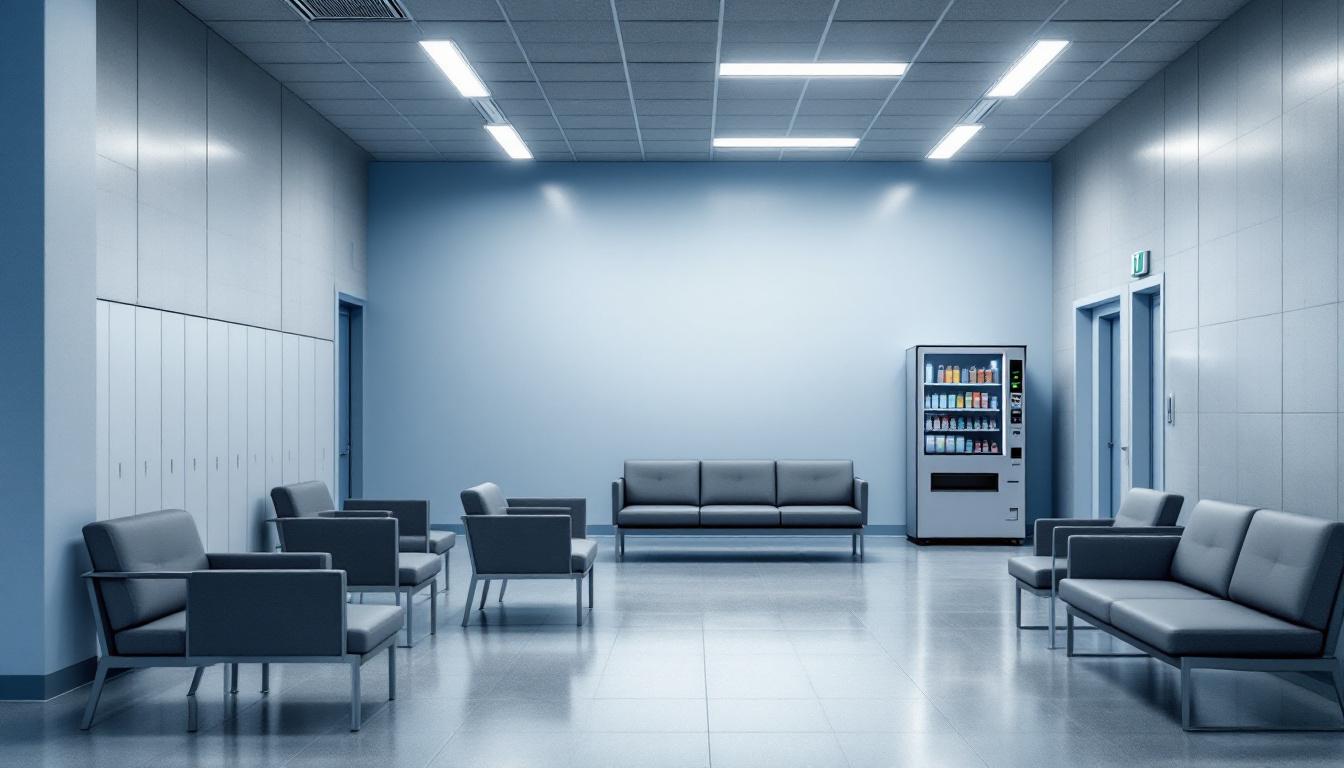
Organizational protocols and established routines form the backbone of daily operations, creating a structured environment where the population navigates their time through carefully coordinated schedules and systematic procedures. At present, residents actively participate in a regimented daily framework that typically begins with early morning counts and continues through designated periods for meals, programming, and personal time, with facility staff maintaining oversight throughout each phase of the day’s activities.
Housing arrangements generally consist of dormitory-style accommodations or individual cells, depending on classification levels and available space, where the population maintains their personal belongings within established guidelines for approved items. Living quarters typically supply basic necessities including bedding, storage areas, and access to restroom facilities, while residents may purchase additional comfort items through the commissary system when funds are available. Additionally, meal service operates on a structured schedule with the population receiving three daily meals in designated dining areas, where portion sizes and nutritional content generally follow state correctional standards.
While recreational opportunities may include access to television viewing areas, reading materials, and periodic outdoor exercise time, these activities supply important structure to break up the daily routine and provide mental stimulation for residents. Work assignments within the facility typically offer the population opportunities to contribute to daily operations through tasks such as kitchen duties, cleaning responsibilities, or maintenance support, often providing small compensation or credits toward commissary purchases. Additionally, visitation policies generally allow scheduled contact with approved family members and friends, while telephone access and correspondence options help maintain crucial connections with support systems outside the facility walls.
Ready to Connect?
Start communicating with your loved one today
Search for an Inmate
